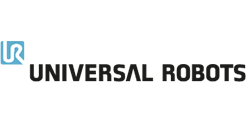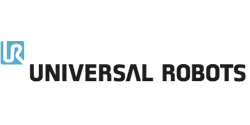Universal Robots A/S hires former Rethink Robotics Inc. employees
Universal Robots A/S hires former Rethink Robotics Inc. employees
Odense, Denmark, November 13, 2018: Universal Robots (UR) is hiring 20+ Rethink staff members, merging UR's Boston office with Rethink's former headquarters in the Seaport area in Boston, USA, with immediate effect.

 Odense, Denmark, November 13, 2018: Universal Robots (UR) is hiring 20+ Rethink staff members, merging UR's Boston office with Rethink's former headquarters in the Seaport area in Boston, USA, with immediate effect. These key personnel bring extensive collaborative robotics experience in engineering, product development, and customer applications, which will combine well with UR's expertise to continue to drive new and innovative collaborative robotics solutions.
Odense, Denmark, November 13, 2018: Universal Robots (UR) is hiring 20+ Rethink staff members, merging UR's Boston office with Rethink's former headquarters in the Seaport area in Boston, USA, with immediate effect. These key personnel bring extensive collaborative robotics experience in engineering, product development, and customer applications, which will combine well with UR's expertise to continue to drive new and innovative collaborative robotics solutions.
"Our new colleagues from Rethink have extensive expertise, knowledge and know-how not only about the technology but indeed also about the market conditions and what the customers' pain-points are. All of this will benefit our customers and partners as we face an increase in competitors due to the huge market potential for collaborative robots," says Universal Robots' President Jürgen von Hollen. "Our ability to secure key members of the Rethink team will have a significant positive impact in meeting market needs and driving innovation."
Collaborative robots, now the fastest-growing segment of industrial robotics, is forecasted to grow from USD 283 million last year to USD 3.26 billion in 2022 according to BIS Research. Universal Robots' market-leading growth means continually adapting the company structure and processes to deliver its ambitious targets for 2019 and beyond. The addition of key Rethink Robotics personnel will help expedite UR's strategic ambitions and actions.
"Rethink Robotics – along with Universal Robots – has been a pioneer in driving and developing the collaborative robotics market globally," says Jürgen von Hollen. "The company was always a good competitor, which helped us drive cobot awareness worldwide, and we want to make sure its customers can continue to fulfill their collaborative automation initiatives. "
Universal Robots offers a future-proof roadmap for customers of Rethink's Baxter and Sawyer models, and is ready to help those customers transition to UR cobots.





